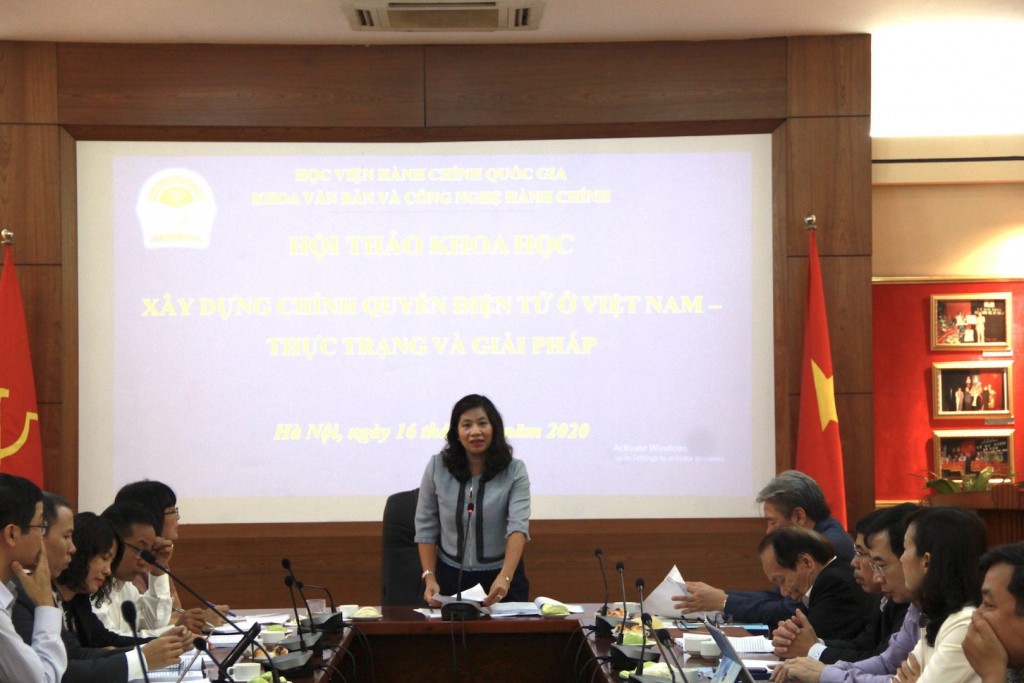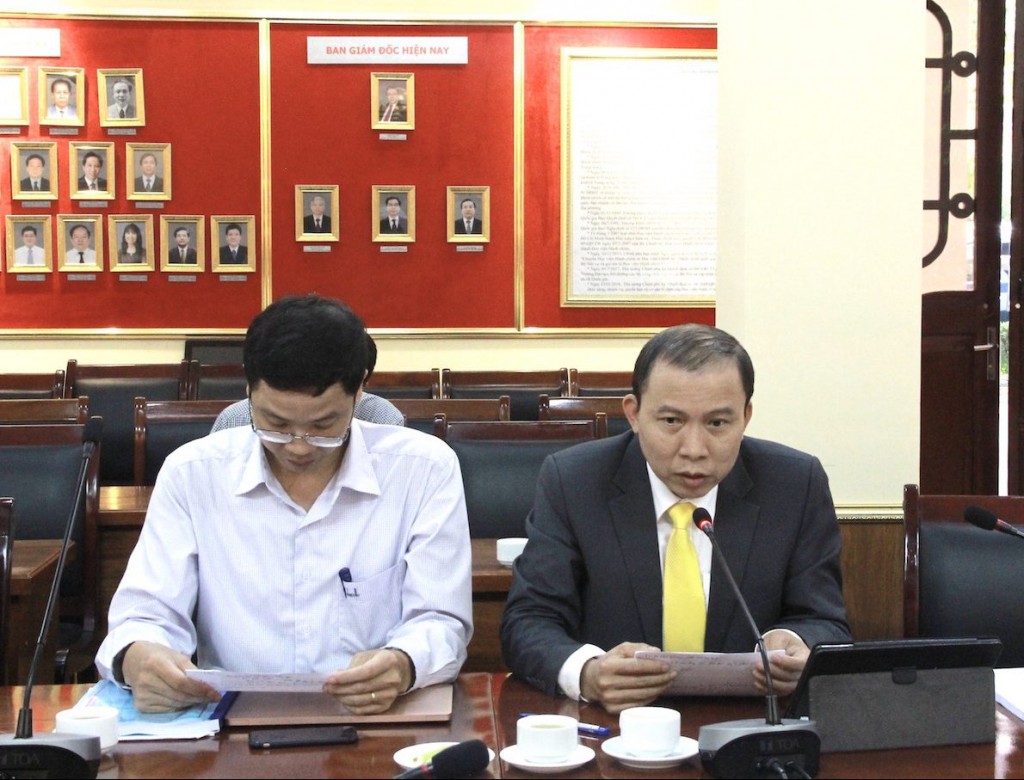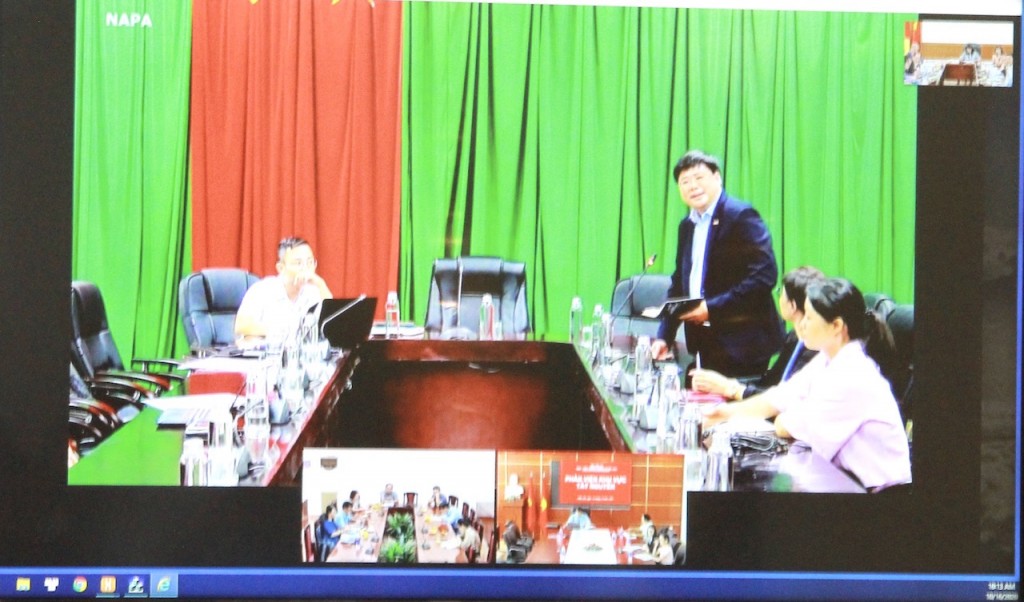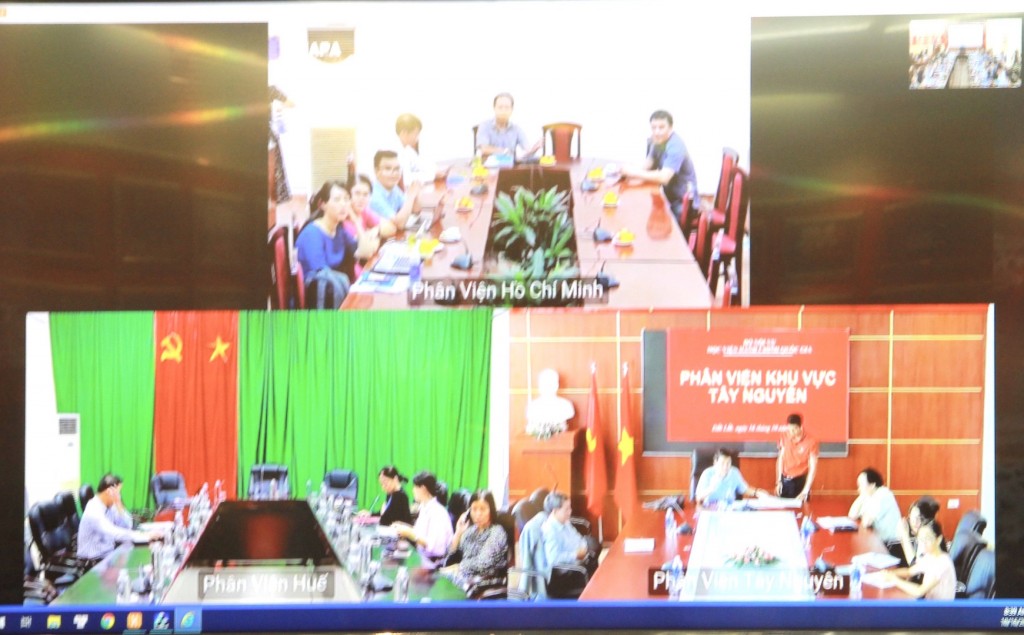(Quanlynhanuoc.vn) – The Communist Party of Vietnam and the Government has paid special attention to the building of e-government in Vietnam in recent years. The year 2020 has witnesses the drastic implementation of e-government development, online public services to serve people and businesses, which has been stated in many Government documents, including Decree No. 30/2020 / ND-CP dated March 5, 2020 on clerical work to achieve the objective of 100% of documents exchanged between state agencies from central to commune level in electronic form (except confidential documents).
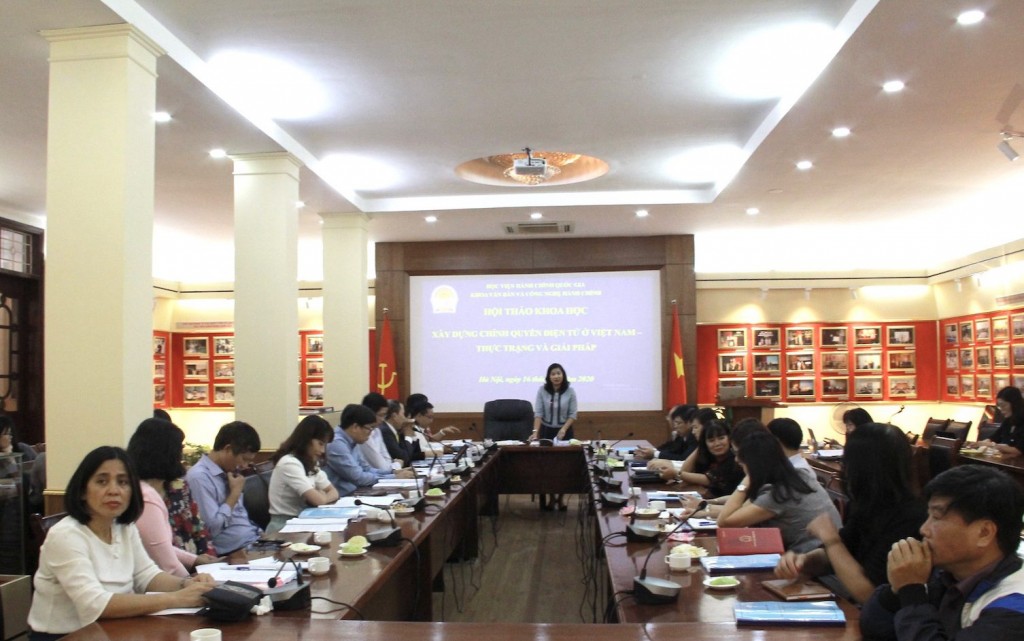
Assoc.Prof.Dr. Nguyen Thi Thu Van, Dean, Faculty of Documents and Administrative Technology chaired the Workshop
On October 16, 2020, at the National Academy of Public Administration, the Faculty of Documents and Administrative Technology held the scientific workshop: “Building e-government in Vietnam – the current situation and solutions”. The workshop was live streamed to all NAPA Branch Campuses.
Assoc.Prof.Dr. Nguyen Thi Thu Van Dean, Faculty of Documents and Administrative Technology chaired the Workshop.
Attending the workshop were Mr. Nguyen Phu Tien, Deputy General Director, Department of Computerization, Ministry of Information and Communications; Mr. Le Van Nang, Director, the National Archives Center for Electronic Documents, Department of State Records and Archives Management, Ministry of Home Affairs; Mr. Hoang Bao Hung, Director, Center for Information Technology, Thua Thien – Hue province; Mr. Pham Van Hung, Department for Public Administration Reform, Vietnam Post Corporation; Assoc.Prof.Dr. Hoang Huu Hanh, Director, of International Training Center, Posts and Telecommunications Institute of Technology.
On the side of NAPA, there were Dr. Dang Xuan Hoan, NAPA President; Assoc.Prof.Dr. Luong Thanh Cuong , NAPA Vice President; Dr. Nguyen Dang Que, NAPA Vice President; Prof.Dr.Sc. Nguyen Van Tham, former Dean, Faculty of Documents and Administrative Technology; leaders of NAPA faculties and departments, lecturers, scholars from the four NAPA campuses in: Hanoi, Ho Chi Minh City, Hue City, Tay Nguyen attending the live streamed workshop.
In the keynote speech, Assoc.Prof.Dr. Nguyen Thi Thu Van stated the significance of e-government in the current context and expected to hear the workshop participants’ comments on: (1) theoretical and practical issues on the building of e-government: content and requirements of the building of e-government in the current context; (2) the current situation of e-government in Vietnam: challenges and barriers to the building of e-government and solutions to build e-government towards a digital government and a digital economy; (3) experience in building e-government in other countries and implications for the building of e-government in Vietnam; (4) the training content on e-government in the training programs of the National Academy of Public Administration and special short-term courses for cadres, civil servants and public employees.
Speaking at the workshop, Dr. Dang Xuan Hoan stated it is necessary to prepare physical facilities and develop an implementation model to build e-government. The content of e-government should be incorporated into the training programs for civil servants and public employees to meet the requirements of e-government. It is also vital to improve the awareness of people and businesses about e-government organization. A special attention should be given to cyber security in the digitalization of the economy and social services.
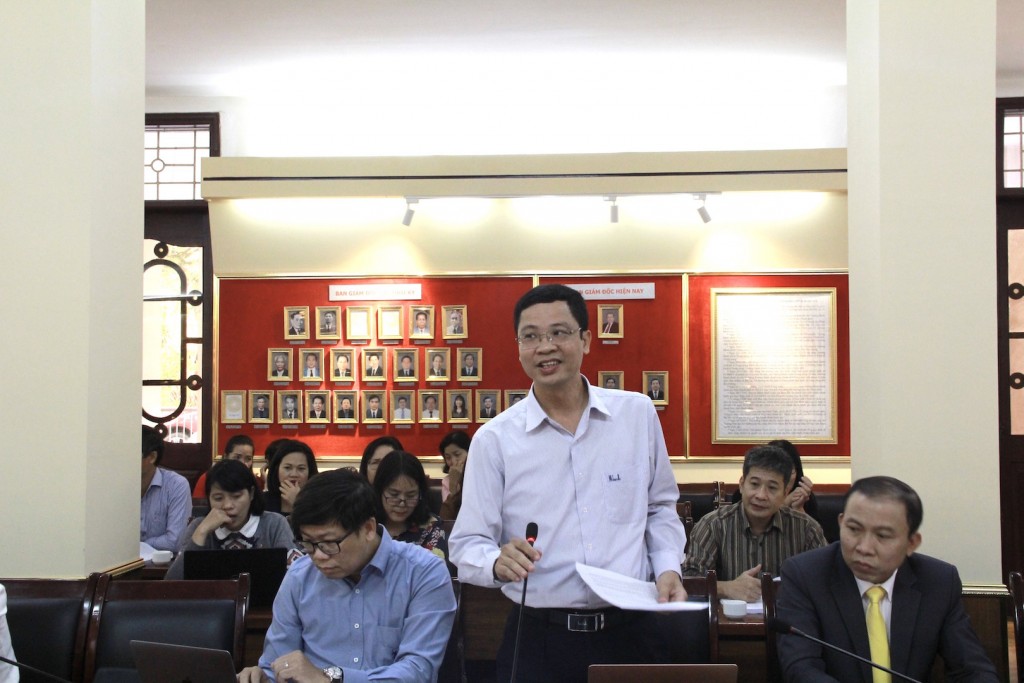
Mr. Nguyen Phu Tien – Deputy General Director, Department for Computerization, Ministry of Information and Communication
Mr. Nguyen Phu Tien Deputy General Director, Department for Computerization, Ministry of Information and Communication stated the Government is capable of providing provide digital services in a quick, convenient, safe manner; performing management activities with transperancy thorugh a digital environment; using digital data and smart analytical tools to make right and timely policies; providing open data for easy access and use. Vietnam has made big changes in terms of e-government rankings and digital government.

Mr. Le Van Nang, Director, National Archives Center for Electronic Documents, Department of State Records and Archives Management, Ministry of Home Affairs
Mr. Le Van Nang, Director, National Archives Center for Electronic Documents, Department of State Records and Archives Management, Ministry of Home Affairs said that ministries, agencies and localities have made many efforts in promoting e-government such as advising on the completing of the legal corridor for building e-government. However, investment in e-government has been still fragmented, not accompanied by key national or local socio-economic development programs, and has not focused on the operation, maintenance and development of the system. There is absence of electronic identity of people and organizations and the cost of digital certificates is not affordable (1 million VND/ person/year) while people’s income is till low on average.
It is necessary to complete the system of legal normative documents on e-government, restructure the information technology infrastructure for building “e-government”, and standardize the database of administrative procedures as a foundation for online public service…
In agreement with Mr. Le Van Nang’s comment, Mr. Pham Van Hung Department for Public Administration Reform, Vietnam Post Corporation said that in an electronic environment, an individual and organization needs to be identified when participating in electronic transactions such as online public services, e-commerce … to prove “I am me”. Identitication and authentication of people is mainly based on traditional methods which are prescribed official documents such as identity cards, citizenship cards, and passports while there are no similar regulations nor suitable method to verify people’s identity when participating in online transactions.
The workshop organization received 27 papers and comments by experts, scientists, and practitioners inside and outside NAPA. The workshop papers and comments have analyzed in-depth issues related to e-government from various perspectives…
In the wrap-up, Assoc.Prof.Dr. Nguyen Thi Thu Van appreciated the comments by NAPA’s faculties, departments, campuses, scholars, and practitioners attending the workshop which are important inputs for the Faculty of Documents and Administrative Technology to suggest the training content of the training courses at National Academy of Public Administration to improve the training of cadres, civil servants and public employees in the digital age.


